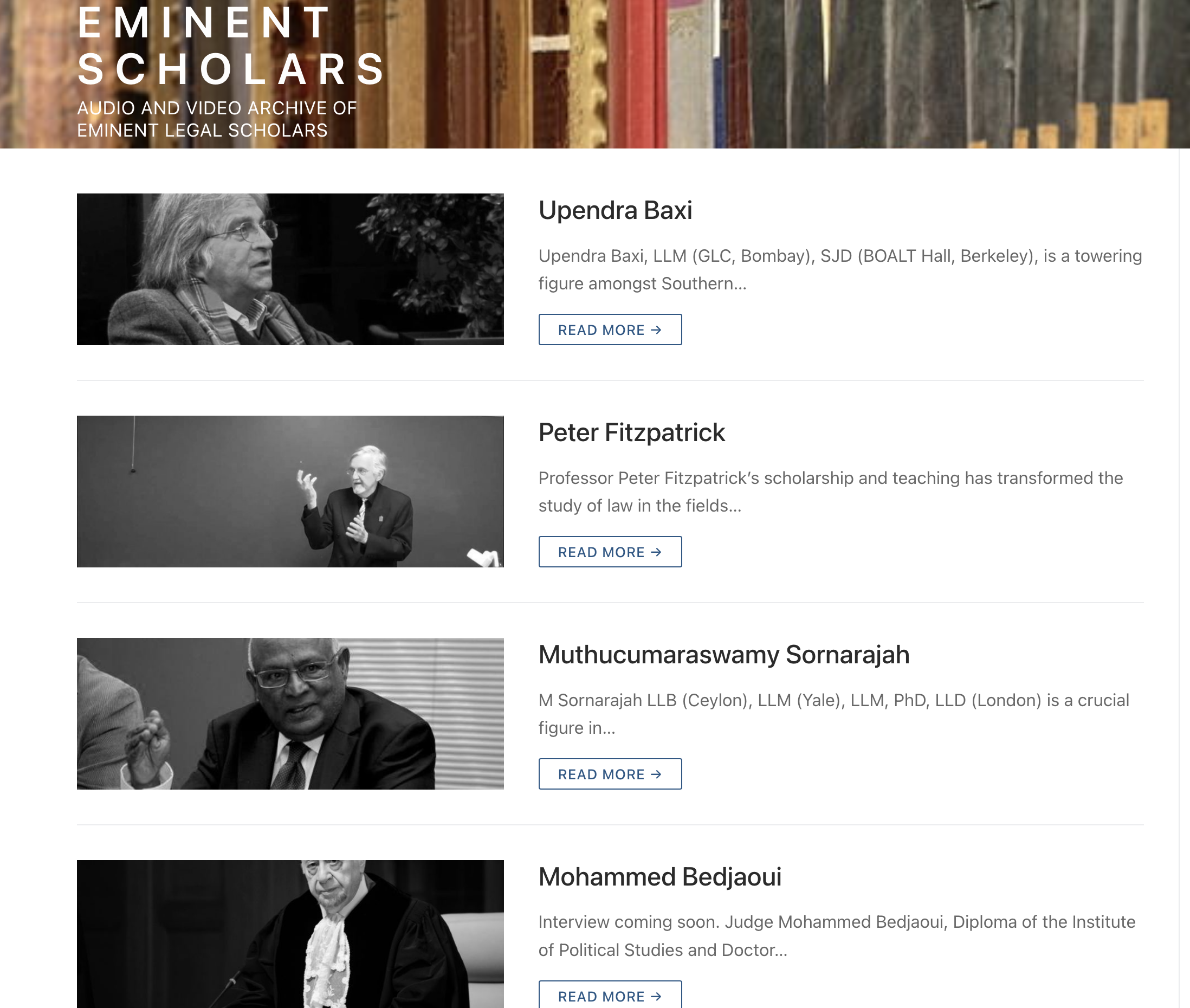New Books Network Podcast Episode
Art/Law Talks
Eminent Scholars Video Archive
Welcome to this Art/Law Talk with Malian/French artist Aboubakar Fofana in conversation with Dr Alice Palmer (Program Director, Institute for International Law and the Humanities, Melbourne Law School) and Laureate Professor, Sundhya Pahuja (Director of the Laureate Research Program in Global Corporations and International Law). Aboubakar Fofana’s work features indigo, a plant that he grows, harvests and processes to integrate into sculptural installations exploring the complex histories and knowledges associated with the trade and use of the natural pigment. He was visiting Australia in early 2023 to undertake a residency with not-for-profit arts organisation InPlace at Garambi Baanj/Laughing Waters Cultural Precinct just outside Naarm/Melbourne. Greta Robenstone filmed our conversation, which took place on the unceded territory of the Wurundjeri People, in the System Garden at the University of Melbourne.
Lectures by Professor Pahuja
Revisiting the Public/Private Divide: Corporations, Legal Education and the Common Good in a Globalized World. The Lord MacDermott Lecture at Queens University Belfast, 2025
The Imperial Architecture of International Law - An AA Action lecture at the Architectural Association delivered in 2021
The break between past and present is not clean. The many crises we are in could be understood instead as one, many-headed monster, born from centuries of division and resulting oppressions. From environmental destruction and depletion, abusive resource extraction, social injustice and disparities, international relations between the Global North and Global South are inherited from colonialism. But where does international law fit in to this? Given their imperial history, it is not clear that the extension of international institutions, and enforcement of international law are the best way to tackle the injustices of imperialism, and its ecological legacies. Far from being virtuous but weak, international law is powerful because of its role in making the world. Can it be redesigned in a register of decolonisation? This talk will experiment with thinking about the buildings which house the institutions of international law as a way into unpacking the social and ecological inheritance of empire transmitted by international law, and how we might reimagine those forms.
This lecture reflects on the enduring division between public and private international law within legal education and its broader implications for society's prosperity and well-being. It examines how this division, rooted in historical legacies of empire, shapes our understanding of the role of law in governing relationships between states, corporations, and individuals. By exploring the evolving concept of corporate mobility and its institutionalization in modern legal doctrine, the lecture raises questions about the adequacy of legal frameworks in addressing contemporary challenges posed by global corporate power. Taking inspiration from Lord MacDermott’s idea that the health of a society is closely tied to the quality and relevance of its legal concepts, the lecture invites a critical re-examination of how international law is taught and practiced. It suggests that rethinking these foundational divisions could better equip future jurists to meet the complex demands of a rapidly changing global landscape, ultimately fostering legal systems that serve the common good more effectively.
The Great Reversal: Corporate Property and Corporate Conduct in International Law. The Judge Jon Newmann Lecture at Yale, 2019
It is commonly held that ‘International Investment Law’, and the ‘UN Framework on Business and Human Rights’ are new and emerging fields of international legal activity. Both engage directly with the place of the multinational corporation, the first in terms of the protection of property and the adjudication of disputes, the second in terms of the conduct of corporations. But these engagements are not as new as they may appear. In this talk, I enrich our understandings of the emergence of these fields by offering an account of an earlier attempt to deal with both the property and conduct of multinational corporations. That was the attempt in the 1970s led by the Global South to establish the UN Commission on Transnational Corporations. That initiative sought to internationalise legal control over the conduct of multi-national corporations, whilst at the same time, to assert national authority over the ownership of property. But what eventuated was the reverse: internationalized protection for foreign property, and national responsibility for corporate conduct. Understanding the story of these ‘new’ regimes in this way - and as intimately connected to each other - sheds light on the dark side of their combined operations today.



